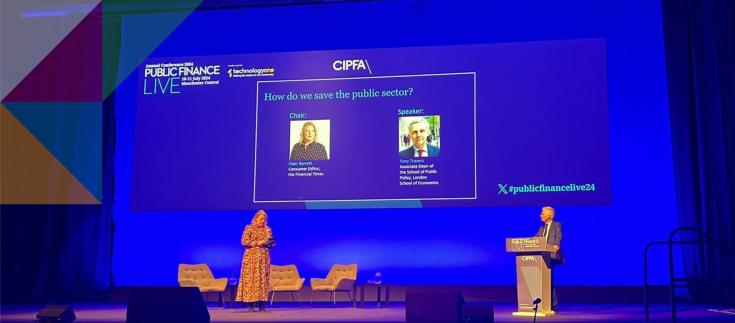
Effective Support Strategies: Practical Steps to Support Men in the Workplace and Beyond

On Friday 13th December 2024, we hosted a thought-provoking webinar titled Effective Support Strategies: Practical Steps to Support Men in the Workplace and Beyond. The session brought together our team members Chantelle Wooldridge and Helen Marshall, alongside motivational speaker and mental health advocate Andrew Pain, to explore the challenges faced by men in today’s society and practical solutions to support them. For us, supporting mental health is not just about addressing a societal issue—it’s about building workplaces where everyone can thrive, lead effectively, and contribute positively to their teams and organisations.
Why Supporting Men’s Mental Health Matters
Creating workplaces that prioritise mental health is a key driver for talent retention, employee engagement, and organisational success. While mental health is critical for everyone, the webinar spotlighted the often-overlooked challenges men face, shedding light on societal pressures and systemic barriers that prevent many from seeking help.
Andrew Pain shared sobering insights, including the widely cited statistic that suicide is the leading cause of death among men under 50. He explained that this is just the tip of the iceberg, with issues like domestic abuse, workplace pressures, and societal expectations further compounding the mental health struggles many men experience.
Sharing his own story of surviving domestic abuse, Andrew highlighted the stigma men encounter when seeking support: “I wouldn’t have dared to tell my colleagues that my wife was beating me.”
This stigma, rooted in societal norms encouraging men to “man up” and deal with challenges alone, often prevents open conversations and early intervention. By addressing this, organisations can create environments where employees feel empowered to speak up and seek help when needed.
In high-pressure roles, such as those in leadership, poor mental health can have a ripple effect on decision-making, workplace culture, and overall organisational performance. Conversely, supporting employees’ mental health can lead to improved retention rates, higher productivity, and more engaged teams—key outcomes for any talent strategy.
Understanding Why Men Are Struggling
The webinar explored some of the root causes behind the struggles faced by men and boys today. Among the key factors discussed were:
Social Media and Influencers: The rise of influencers like Andrew Tate reinforces damaging stereotypes around masculinity, promoting an image of men as unemotional and invulnerable. While some influencers can provide positive role models, many perpetuate outdated ideas that harm men’s mental health.
Generational Norms: While attitudes are slowly shifting, many men still grow up with the notion that ‘real men don’t cry’ or show vulnerability. This cultural baggage creates barriers to open conversations about emotions.
Societal Expectations: While economic challenges and workplace changes have redefined roles, it’s vital to move away from the notion that anyone—men or otherwise—should conform to outdated ideals. Instead, the focus must be on empowering all individuals, regardless of gender, to succeed in ways that align with their personal and professional aspirations.
Physical and Mental Health: Declining testosterone levels, linked to poor diets, lack of exercise, and stress, contribute to increased rates of depression and fatigue. Andrew noted the alarming rise in health issues among working-class men, whose workplace risks remain disproportionately high.
Steps to Support Men in the Workplace and Beyond
The panel offered practical strategies to create environments where men can thrive, both personally and professionally.
Promote Psychological Safety
Psychological safety refers to an individual’s confidence in taking risks at work without fear of judgment or retaliation. To foster this, workplaces need to build trust, encourage open dialogue, and model vulnerability. Regular check-ins, men’s support groups, and leadership-led conversations can pave the way for safer spaces.
Encourage Healthy Lifestyles
Diet and exercise play a vital role in mental health. Andrew shared actionable tips for boosting testosterone and overall wellbeing:
• Incorporate zinc, magnesium, and Vitamin B12 into your diet.
• Get adequate Vitamin D and prioritise sleep.
• Limit sugar and alcohol consumption.
• Engage in regular exercise to reduce fatigue and improve mood.
Challenge Toxic Masculinity
Raising awareness about the harmful effects of toxic masculinity is crucial. Workplaces must empower men to break free from outdated norms by encouraging vulnerability and emotional expression. Positive role models who model these behaviours can inspire men to redefine what it means to be strong.
Build Communities
Creating spaces where men feel supported, such as workplace communities or men’s groups, can foster camaraderie and connection. As Andrew said, “Men don’t talk face-to-face; they talk shoulder-to-shoulder.” Facilitating these conversations in a comfortable setting can be transformative.
Supporting men’s mental health isn’t just about raising awareness; it’s about taking meaningful action. From challenging stereotypes to promoting healthier lifestyles, small changes can make a big difference. Together, workplaces and communities can create environments where men feel safe, valued, and empowered to thrive.
Running webinars like these reflects our commitment to fostering inclusive workplaces and addressing critical mental health issues that impact our colleagues and clients. By starting these conversations and sharing practical strategies, we’re equipping organisations with the tools they need to drive cultural change and support their teams effectively. More importantly, we’re contributing to a broader societal shift—helping to dismantle harmful norms, reduce stigma, and create a healthier, more compassionate future for everyone.
Let’s continue the conversation and work towards a future where men can break free from societal constraints and find the support they need.
Similar blogs
Sign up to newsletter
By submitting your details you agree to our T&Cs





